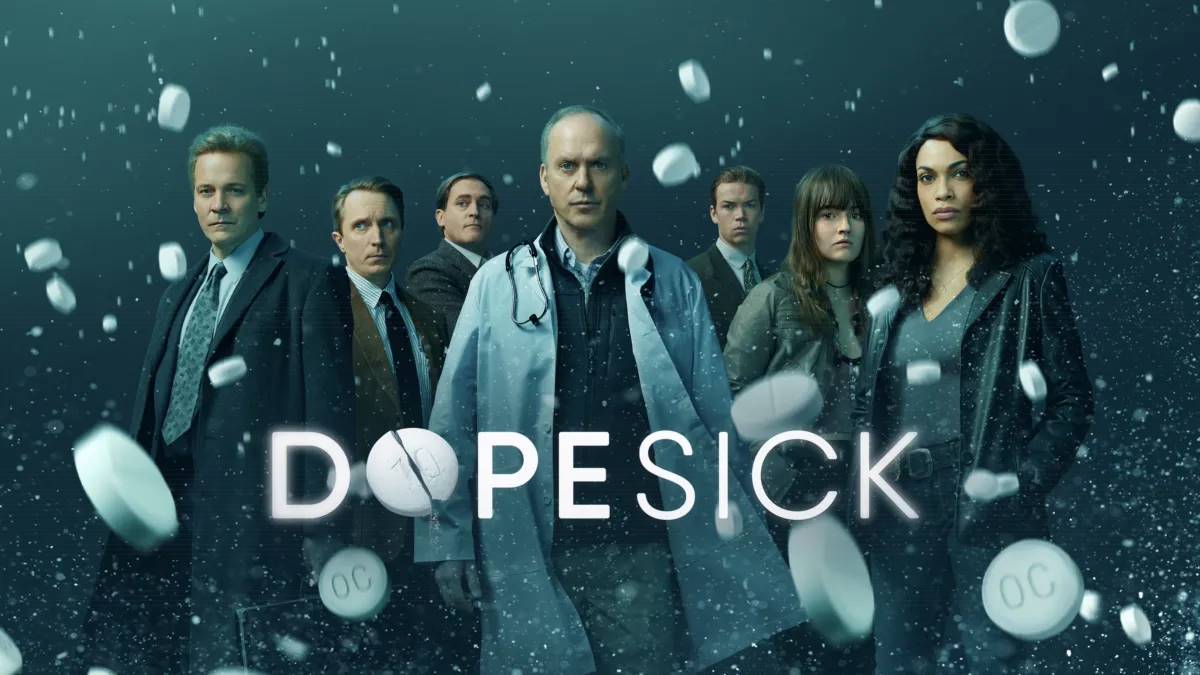Real influence and genuine feedback are what can lead us into a positive cycle.
Author: Zolo, Deep Tide TechFlow
It seems everyone is looking forward to 2025, for market reasons and trending topics. Project teams, retail investors, KOLs, VCs… everyone is ready to make a big move.
I am one of them. But I have started to be cautious; when everyone wants to make a big move, how can I ensure that I do not get "caught up" in the big move.
Looking back at 2024, I hope that what I encounter and create in 2025 will be real and have positive value for the industry.
Real information: Information silos are everywhere; what we seek is not more information, but real information.
Do not blindly trust a single channel
This year, the U.S. election made me deeply aware of this issue. If you only look at Polymarket, you would always think Trump is winning, and the fluctuations in between would catch you off guard.
If you only look at "certain U.S. party media," you might think Harris still has a chance; when you switch to Twitter, you will find that it is filled with news about Trump winning.
Information is neither right nor wrong, but it is all narrow.
So, when we evaluate a project's popularity and reputation solely through Twitter, we should also look at on-chain data, community discussions, and engage in conversations with others.
Diversify your channels to receive more varied signals.
Escape the biases of KOLs
This year, the discussions around ai16z left a deep impression on me, as I happened to follow it from the beginning to now.
There are both positives and negatives. For instance, in the beginning, the founder's unfiltered comments made many people worry about their holdings, and KOLs of the caliber of Ansem and Him publicly FUDed ai16z.
In the case of the eliza/Eliza capitalization debate, different KOLs held very different opinions.
Having differing views is normal, and criticizing a project is also normal, but if all viewpoints deviate from logic and become emotional and rigid, they are biased.
During this period, if you only listened to those who were consistently bullish on ai16z, you would think the project's issues were trivial, but you would also have to endure the selling pressure during that time.
Similarly, if you only followed those KOLs who continued to FUD ai16z regardless of its improvements, the information you received would always be negative, causing you to miss out on tenfold or even hundredfold returns.
KOLs are not right or wrong; each KOL is merely an information silo. Their quality varies, but because they are individuals, they inevitably carry their own fixed perceptions and even certain biases. When researching a project, do not overlook friends around you who have genuinely studied a project in depth.
Beware of conspiracy groups; your insider information is mostly "losing news"
Many friends have shared on Twitter that over 80% of the "insider information" they receive results in losses.
I am the same; it is not that I share "insider information" with malice, but because we are all part of the play.
You do not know the authenticity of the information (will it pump);
You do not know the effectiveness of the information (where will it pump to);
You do not know what number you are among those who also know this information (is the buy-in low enough);
…
The probability of this information being "distorted" is too high,
to the extent that these "insider messages" become "losing news" by the time they reach you.
Real users: Reject false data prosperity; traffic is important, but do not become addicted to traffic.
The industry's traffic is becoming more false; we need real influence
Whether it is Twitter followers, website traffic, or AMA attendance, fake traffic is increasing, supporting many surrounding "traffic-selling" services.
For my own work, this realization is even deeper.
In media, influence is a very important judgment factor; many people who do not understand the industry generally assess whether a media outlet is worth collaborating with based on traffic from some third-party tools.
This has directly led to the phenomenon of "buying traffic" to attract "business," which has become common across all industries.
However, "bought traffic" cannot bring "real influence";
The "business" attracted does not necessarily yield "good results" for them.
In this cycle:
Platforms buy traffic to appear influential;
Project teams need appealing traffic to prove their efforts are effective;
Different platforms compete with each other, and the cost of buying traffic gradually increases;
Traffic increases, superficial effects improve, and the industry enters a false prosperity, with real wealth only transferring to "traffic service providers."
I would call this phenomenon "TrafficSick." Once infected, one will sink deeper.

How to judge real influence?
Try to communicate with real people, engage with different roles in the industry, ask them what they think about a certain issue, whether they have seen a certain content, and what their evaluations are, etc.
This is also the reason I attended many events last year; only by genuinely interacting and communicating with different friends offline did I understand how everyone views us, what topics are currently being discussed, what the community atmosphere is like, and what kind of content truly interests users.
Real influence and genuine feedback are what can lead us into a positive cycle.
Do not fear low traffic; consider building an emotional niche community first
In the past, while doing advertising, I was deeply influenced by a viewpoint:
Everyone has some commonalities at a fundamental level, so no matter what you do, as long as it is something that "truly moves you" and "you deeply resonate with," there will definitely be someone on the other side of the world who shares the same resonance with you.
Just like listening to music, "niche music" is always a relative concept and will always have a market.
So from a market perspective, the problems to be solved are actually very clear:
1- Are you doing something that truly moves and resonates with you?
2- Have you spread this thing widely enough?
For Web3, although our market is growing larger, the good news is that our traffic is not very dispersed. We can count where users are located, which social media they use, and who your competitors are.
Loyal members are definitely attracted by some of your "extreme concepts, ideas, attitudes," etc. As long as you find them, they will come to you and start to gather, thus forming a community.
You do not need many people because these few dozen individuals may have a much better effect than tens of thousands. Therefore, we should not worry about low traffic but rather whether what we are doing can truly attract people.
Real creation: When AI becomes a common creative tool for everyone, what kind of content will attract people?
This year, aside from the hype around concepts like AI Agents, AI as a tool has significantly enhanced our productivity. However, a common point of criticism is: this thing has a strong AI flavor.
Whether you realize it or not, you will gradually notice that:
The content you see will become increasingly homogenized; content frameworks and reasoning logic will become more similar; the content cited for arguments will gradually converge; research-type content will increase (because it is easier to produce).
I know that some content platforms have been using AI to produce content in the background, expanding their databases, doing SEO, and earning traffic revenue.
But users will definitely experience aesthetic fatigue.
So when AI is widely regarded as a creative tool, what kind of content will attract people? I believe it involves two aspects:
1- We should value ideas.
Have your own thoughts on the produced content, break the existing frameworks, and approach from different angles.
2- We should create new things.
People will always applaud things they have "never seen before." Creativity does not adhere to logic; it is a random combination and also something "unseen."
We should place more emphasis on creating content rather than organizing content.
Real connections: Time is precious; do not waste it casually.
A long-term and healthy relationship should be mutually beneficial, not one-sided and constantly taking advantage.
Those who do not recognize the value of your labor will continuously seek your "help";
Those who are stingy towards others/communities will not be willing to share matching benefits for your contributions.
As everyone seems ready to make a big move in 2025, I do not want to be the one who "only takes" and is unwilling to give.
This year, my dog fell seriously ill, and when I spent a lot of time taking care of her, I realized that I had only been seeking emotional value from her.
While satisfying my own emotional needs according to Maslow, I could not even meet her most basic need for timely meals.

This year, many people's time is very precious; do not be afraid to seek help, but always remember not to just take,
Mutually beneficial connections are the only real and effective connections.
Once the arrow is shot, there is no turning back; I believe this should also be the attitude towards work this year.
Place heavy bets on recognized matters, do not overly disperse your energy, and do not think that if you do not do well, there will be another opportunity.
The above is my summary of 2024 and my expectations for myself in 2025.
Finally, I would like to thank the partners who chose Deep Tide in 2024, and I hope that in 2025 we can work hard together to create more interesting and creative things.
To those who have read this far, I wish you all the best in 2025 in the matters you recognize. Happy New Year! 🎉~
免责声明:本文章仅代表作者个人观点,不代表本平台的立场和观点。本文章仅供信息分享,不构成对任何人的任何投资建议。用户与作者之间的任何争议,与本平台无关。如网页中刊载的文章或图片涉及侵权,请提供相关的权利证明和身份证明发送邮件到support@aicoin.com,本平台相关工作人员将会进行核查。




